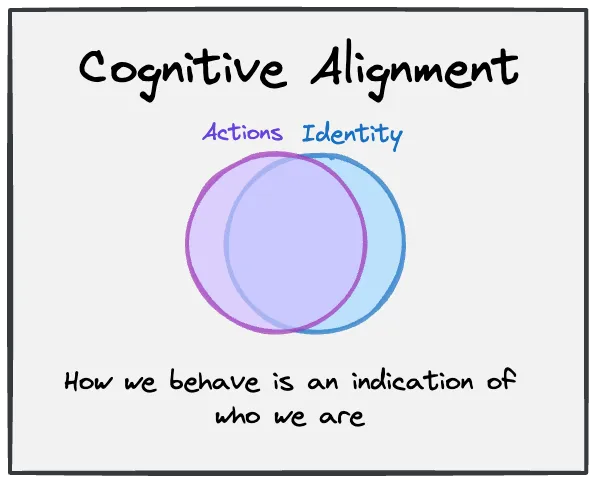Cognitive Alignment
Notes
The opposite of Cognitive Distancing. It's when we are unconsciously compelled to match our beliefs to our physical/mental state, like being happier after we smile, or believe more in things that we read out loud, and even being more honest after signing a declaration, even if we are forced to do those actions. That's why it's better to complement in advance rather than ask for compliance. When our alignment is questioned, we often rationalize it.
Another reason why this alignment is so strong is because admitting that our behaviors and our will don't always align means to lose some of our Agency, as if we lack control over ourselves. We want to feel as if we are in charge of our lives, and it's shameful to admit how little we control, so we pretend as if it was our idea all along, eventually believing ourselves.
It gets problematic when we are doing bad things. We can get stuck in a Fixed Mindset, because this alignment lets our actions defines us, which locks us where we are, and who we are. We become helpless vs the forces that influence our behavior (and in turn our identity). We are trapped in the narrative told by others or our circumstances, without letting us have a say in them.
Instead of thinking of us as bad people, it would be more helpful to think that we are normal people who did bad thing. To escape alignment doesn't mean to avoid Accountability, it's not to claim that we are perfect no matter what we do. It's to admit that we have done bad things, but they don't define us, we get to detach from them and write a new story Growth Mindset.
Visual

Overview
🔼Topic:: behavioral psychology (Map) Origin:: 🔗Link::